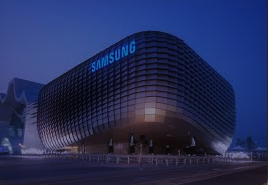Samsung and Naver jointly develop AI semiconductors that are 8 times more energy efficient than Nvidia chips
According to foreign media reports, Samsung Electronics and Naver announced an artificial intelligence (AI) semiconductor they jointly developed, which has been under development for the past year. The product, known for being about eight times more energy efficient than chips from rivals such as Nvidia, is expected to be used to power HyperCLOVA X, Naver's ultra-large-scale artificial intelligence model.
The Ministry of Science, Technology, Information and Communications announced that the "Fourth High-Level Strategic Dialogue on Artificial Intelligence Semiconductors" will be held at a hotel in Seocho District, Seoul on December 19 to showcase the achievements of domestic artificial intelligence semiconductor companies.
The AI semiconductor developed by Naver and Samsung Electronics has appeared in the form of field programmable gate array (FPGA). FPGA is a type of semiconductor that allows developers to modify designs primarily for prototyping before mass production. This semiconductor is used specifically for “inference,” the process in which new data is used to produce logical results after an AI model has completed its “learning” phase.

Naver said the AI semiconductor is eight times more efficient than competing products from companies such as Nvidia. This is achieved by integrating low-power, compact double data rate (LPDDR) DRAM for increased efficiency. Higher power efficiency means that the same computing performance can be achieved with less power consumption, allowing large-scale computing tasks to be performed at a lower cost.
Previously, the two companies had signed a memorandum of understanding (MOU) to develop AI semiconductor solutions in December last year and established a practical working group. The completed AI semiconductor is expected to be used to run Naver’s HyperCLOVA X.
The Ministry of Science, Information and Communications also announced the current status of "K-Cloud Project". The K-Cloud Project is a project that aims to develop low-power, ultra-high-speed AI semiconductors in the United States and to apply them to data centres.
The government plans to enhance domestic artificial intelligence semiconductors in three stages by 2030. The stage involves applying domestic neural processing units (NPUs) to data centers and providing cloud-based artificial intelligence services.
Companies participating in the phase, such as NHN Cloud, Sapeon Korea, and NOTA, demonstrated their “intelligent traffic control service” that can identify vehicles and pedestrians in crosswalk CCTV footage. KT Cloud, Rebellion, and Superb AI proposed solutions for calculating nutrient intake, while Naver Cloud, Furiosa AI, and Simple Platform demonstrated technology that uses CCTV footage from construction sites to identify workers and measure risk levels.
If you like this article, may wish to continue to pay attention to our website Oh, later will bring more exciting content. If you have product needs, please contact us

